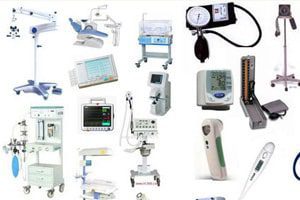
External cardiac compressors, medical devices used to compress the chest to provide blood flow during cardiac arrest, never underwent strict pre-market approval with the U.S. Food and Drug Administration (FDA). Now, some researchers are expressing concern that this device and nearly one dozen others will never be fully evaluated by the FDA, according to The […]
 External cardiac compressors, medical devices used to compress the chest to provide blood flow during cardiac arrest, never underwent strict pre-market approval with the U.S. Food and Drug Administration (FDA).
External cardiac compressors, medical devices used to compress the chest to provide blood flow during cardiac arrest, never underwent strict pre-market approval with the U.S. Food and Drug Administration (FDA).
Now, some researchers are expressing concern that this device and nearly one dozen others will never be fully evaluated by the FDA, according to The New York Times. For example, metal-on-metal replacement hip devices are considered a high risk; however, other devices are expected to be downgraded. “People would be shocked to know that the FDA never got its act together to require the studies,” Diana Zuckerman, president of the National Research Center for Women and Families, told the Times.
Not all medical devices are tested for safety before they are released to market, a long-discussed issue that has given rise to increased controversy, especially concerning metal-on-metal hip implant devices and transvaginal mesh products. Device makers may seek FDA clearance through a 510(k) application should a device be substantially similar to a so-called “predicate” or already approved device. Device makers are only required to file paperwork with the FDA and pay a $4,000 fee, according to Newsmax Health. Only after a device is on the market and has been tied to increased injury reports—so-called “post-market surveillance”—the agency becomes involved.
High-risk devices, explained the Times, are so designated because they “sustain human life, are instrumental in preventing harm, or pose an unreasonable risk to patients.” Congress has directed the FDA to either put high-risk devices through stringent testing or re-classify the devices. Now, according to the Times, consumer watchdog and patient safety groups have criticized an agency proposal to change the classification of a number of products.
External pacemakers, access tubes implanted in blood vessels, a component of a lung device used for newborns, dental devices implanted near the brain, and screw systems used in spinal surgery are among the devices that may be downgraded, according to the FDA. Defibrillators, metal-on-metal replacement hips, implanted pacemakers, and female condoms, are expected to remain under the high-risk classification and are required to undergo premarket approval, the Times reported.
FDA officials told the Times that “every medical device comes with a certain level of risk, whether it is a pair of crutches or a heart valve.” The agency said that devices no longer deemed high-risk are still reviewed and “in situations where additional information is needed, the agency may request additional data from the company to ensure that reasonably safe and effective devices are coming to market.”
Defibrillator wires, artificial hips and knees, and leaky drug pumps, have been associated with premature failure, according to the Star Tribune. Lawsuits and injury reports are mounting over these devices and patients and their families have alleged serious, sometimes life-altering complications; severe pain; and even death. What’s more, 25-40 medical devices are recalled each year over high risk, a classification that indicates that use of the recalled device may put patients’ lives at risk.
Despite increasing injury reports and legal action, the makers of medical devices are still spending large amounts of money to push their products, according to the Star Tribune. “We’re not talking about computers or cars or toasters,” said Lisa McGiffert, director of the Consumers Union’s Safe Patient Project, a group that fights for improved medical practices. “We’re talking about things that go inside people’s bodies.”


